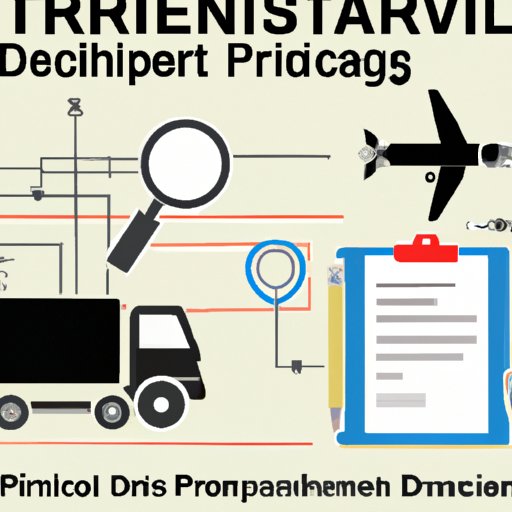Introduction
Freight dispatching is the process of managing goods transportation across the country. It includes managing freight transportation, setting up routes and schedules, and negotiating rates with shippers and carriers. As a freight dispatcher, you will be responsible for coordinating shipments, tracking deliveries, and ensuring customer satisfaction. This business can be lucrative, but it is also fraught with challenges. In order to succeed as a freight dispatcher, you must develop a comprehensive business plan, understand the industry’s regulations and legal requirements, and make connections with trucking companies and other brokers.
Research the Freight Dispatching Industry
The first step in starting a freight dispatching business is to thoroughly research the industry. You should have a clear understanding of the market, its players, potential customers, and the legal requirements for starting a freight dispatching business. Knowing the competition and their strengths and weaknesses can help you develop strategies to differentiate yourself from them.
It is also important to familiarize yourself with the different laws and regulations governing freight dispatching businesses. These regulations vary from state to state, so it is important to research the laws in the state where you plan to operate. Additionally, you may need to obtain certain licenses and permits in order to legally operate a freight dispatching business.
Develop a Business Plan
Once you have completed your research, the next step is to create a business plan. Your business plan should outline your goals, strategies to reach those goals, and resources needed to achieve them. It should also include a financial plan that accounts for startup costs, operational expenses, and potential revenues. Having a clear business plan will help you stay organized and focused on your long-term goals.
Make Connections
In order to be successful in this business, you must establish relationships with trucking companies and other brokers. This will help you obtain leads and contracts to transport goods. You should also network with other freight dispatchers in your area to learn best practices and develop contacts within the industry.
Obtain Licenses and Permits
Depending on the state where you plan to operate, you may need to obtain certain licenses and permits in order to legally operate a freight dispatching business. These licenses and permits will vary depending on the type of goods you are transporting and the types of vehicles used. You should contact your local, state, and federal government offices to determine which licenses and permits you need.
Invest in Technology
In order to stay competitive in the freight dispatching industry, you must invest in the latest technology. This includes GPS tracking systems and software to manage operations of your business. These tools will help you keep track of shipments, monitor delivery times, and provide real-time updates to customers.
Market Your Services
Once you have established your business and obtained all the necessary licenses and permits, it is time to start marketing your services. Promote your services to potential customers by utilizing traditional advertising methods such as direct mail, radio, and television. You can also take advantage of online marketing campaigns such as social media and email marketing.
Hire Qualified Staff
In order to ensure smooth operations, it is essential to hire qualified personnel. This includes dispatchers, drivers, and support staff. They will assist you with day-to-day operations and ensure that your customers receive the highest level of service.
Conclusion
Starting a freight dispatching business requires extensive research and planning. You must understand the industry’s regulations and legal requirements, develop a comprehensive business plan, make connections with trucking companies and other brokers, obtain necessary licenses and permits, invest in the latest technology, market your services, and hire qualified staff. With the right strategy and dedication, you can be successful in the freight dispatching business.
(Note: Is this article not meeting your expectations? Do you have knowledge or insights to share? Unlock new opportunities and expand your reach by joining our authors team. Click Registration to join us and share your expertise with our readers.)
